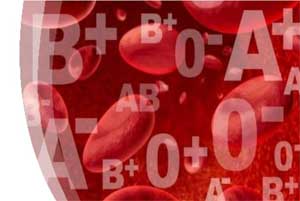- Home
- Editorial
- News
- Practice Guidelines
- Anesthesiology Guidelines
- Cancer Guidelines
- Cardiac Sciences Guidelines
- Critical Care Guidelines
- Dentistry Guidelines
- Dermatology Guidelines
- Diabetes and Endo Guidelines
- Diagnostics Guidelines
- ENT Guidelines
- Featured Practice Guidelines
- Gastroenterology Guidelines
- Geriatrics Guidelines
- Medicine Guidelines
- Nephrology Guidelines
- Neurosciences Guidelines
- Obs and Gynae Guidelines
- Ophthalmology Guidelines
- Orthopaedics Guidelines
- Paediatrics Guidelines
- Psychiatry Guidelines
- Pulmonology Guidelines
- Radiology Guidelines
- Surgery Guidelines
- Urology Guidelines
Severe trauma patients with Blood group O have high Mortality

Dr. Takayama, the corresponding author said: "Recent studies suggest that blood type O could be a potential risk factor for hemorrhage (bleeding in large quantities). Loss of blood is the leading cause of death in patients with severe trauma but studies on the association between different blood types and the risk of trauma death have been scarce. We wanted to test the hypothesis that trauma survival is affected by differences in blood types."
The authors suggest that the possible explanation of the high death rate in trauma patients with blood type O is lower levels of von Willebrand factor. Wataru Takayama said: "Our results also raise questions about how emergency transfusion of O type red blood cells to a severe trauma patient could affect homeostasis, the process which causes bleeding to stop, and if this is different from other blood types. Further research is necessary to investigate the results of our study and develop the best treatment strategy for severe trauma patients."
The authors caution that all the patients whose data were analyzed in this study were Japanese and therefore there is a need for further research to understand if the findings apply to other ethnic groups. Additionally, there was no evaluation of the impact of the individual blood types A, AB or B on severe trauma death rates. Instead, the authors compared type O to non-O blood type which may have diluted the effect of individual blood types on patient survival.
The authors concluded that blood type O was significantly associated with high mortality in severe trauma patients and might have a great impact on outcomes. Further studies elucidating the mechanism underlying this association are warranted to develop the appropriate intervention.
For further information click on the link: https://doi.org/10.1186/s13054-018-2022-0

Disclaimer: This site is primarily intended for healthcare professionals. Any content/information on this website does not replace the advice of medical and/or health professionals and should not be construed as medical/diagnostic advice/endorsement or prescription. Use of this site is subject to our terms of use, privacy policy, advertisement policy. © 2020 Minerva Medical Treatment Pvt Ltd